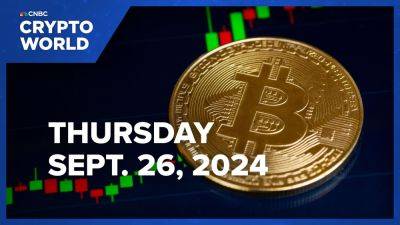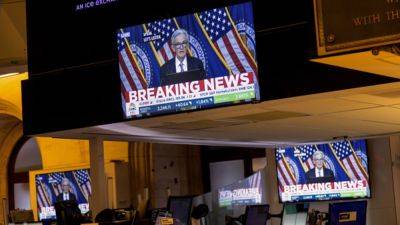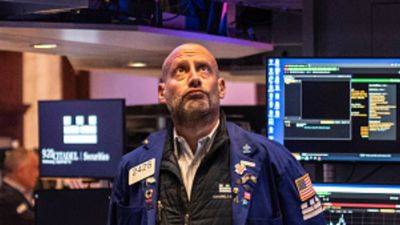CNBC Daily Open: It might be better economic data isn’t all rosy
This report is from today's CNBC Daily Open, our international markets newsletter. CNBC Daily Open brings investors up to speed on everything they need to know, no matter where they are. Like what you see? You can subscribe here .
New highs, once again
U.S. stocks continued rising on Tuesday, with the S&P 500 and Dow Jones Industrial Average closing at new highs for the second consecutive day. Europe's regional Stoxx 600 index rose 0.65%. Stocks linked to the Chinese market and consumers rose the most, buoyed by the China's announcement of new stimulus measures.
Consumer's not confident
The Conference Board's consumer confidence index fell to 98.7 in September, down from 105.6 in August. September's figure comes in lower than the Dow Jones consensus forecast of 104 and is the biggest month-on-month drop in three years. Respondents saying jobs were "hard to get" rose to 18.3% from 16.8%.
Wall Street's diverging views
Goldman Sachs Chief Financial Officer Denis Coleman told CNBC the U.S. Federal Reserve can "sort of maintain a soft-landing trajectory" because "inflation levels are coming down, unemployment is manageable." But Jamie Dimon, CEO of JPMorgan Chase, said in a CNBCTV18 interview that, on the topic of a soft landing, he veers "on the cautious side."
How much will oil demand grow?
Oil demand will experience "robust medium-term growth," reaching 112.3 million barrels per day in 2029 from 102.2 million barrels per day in 2023, according to OPEC's 2024 World Oil Outlook report. Not all analysts agree with that forecast. The International Energy Agency thinks oil demand will level off at 106 million barrels per day by the end of the decade.
[PRO] Two different stories
Depending on whom you ask, the economy is either robust







